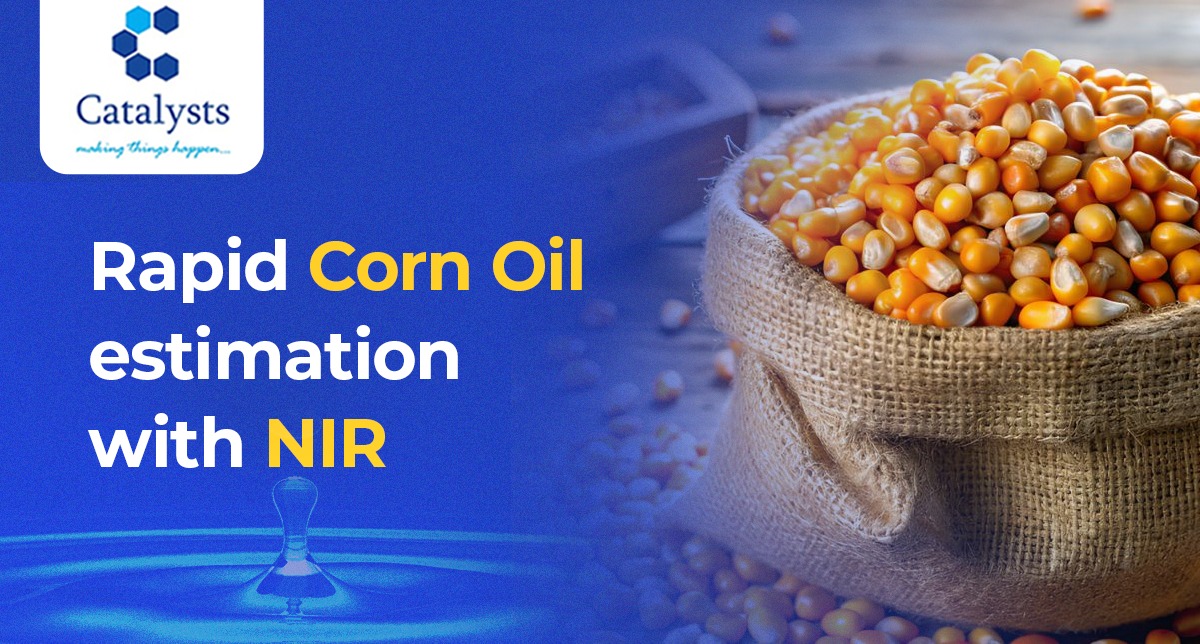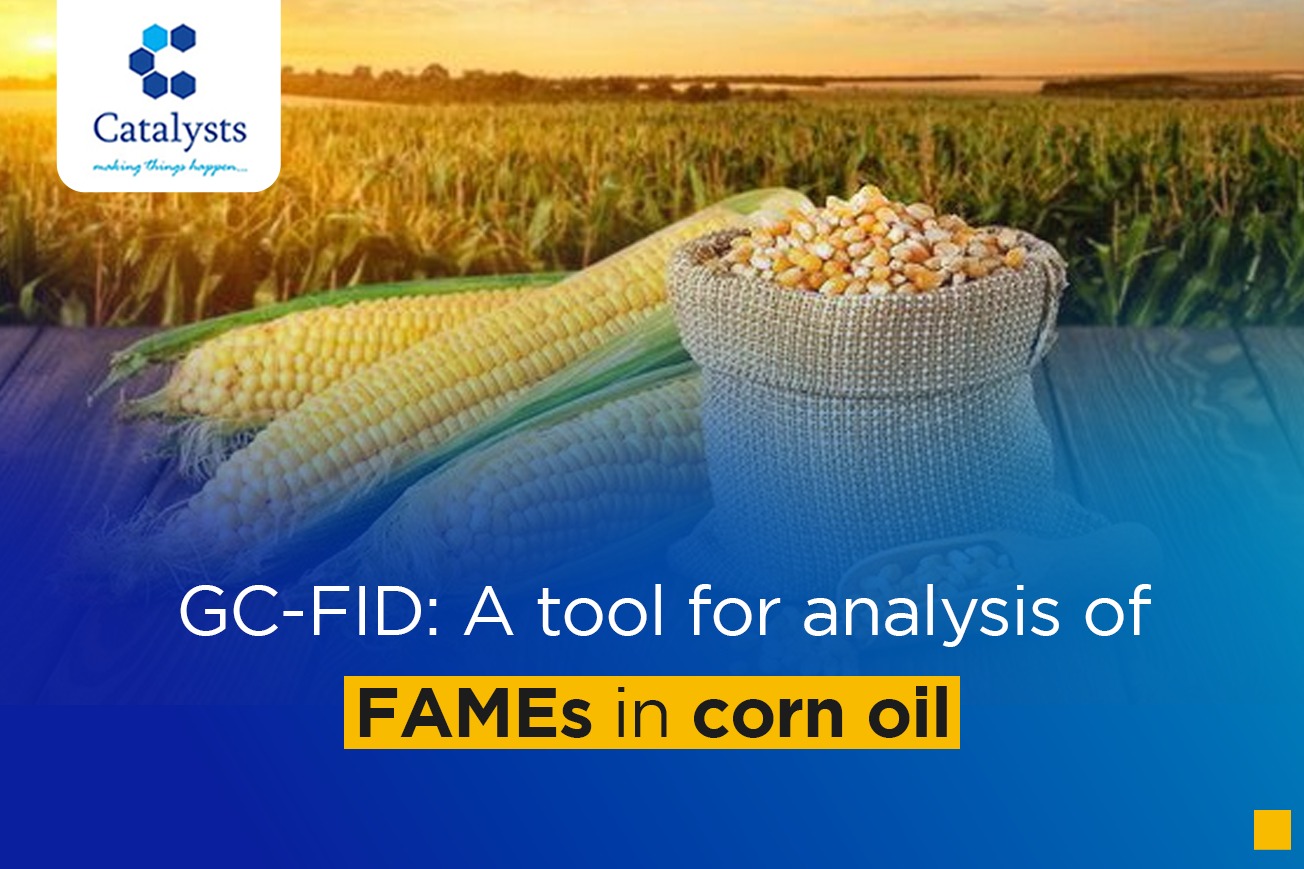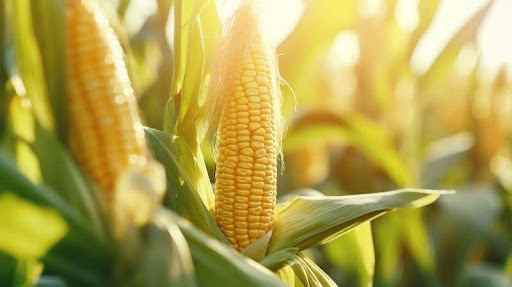
Importance of Water Treatment in the Ethanol Industry
Discover the critical role of water treatment in the ethanol industry, ensuring sustainability, efficiency, and compliance with environmental standards.

Enzytreat Advance - Creating a Stable Foundation for High-Performance
Discover Enzytreat Advance, your solution for building a stable foundation that enhances high-performance. Unlock your potential today!

Rapid Corn Oil Estimation with Near-Infrared Spectroscopy: An Effective Analytical Technique with Ne
Explore the effectiveness of near-infrared spectroscopy in rapidly estimating corn oil, providing new perspectives and enhancing analytical techniques in agriculture.

GC-FID: A tool for analysis of FAMEs in corn oil
Explore GC-FID, the essential tool for accurate FAME analysis in corn oil. Unlock detailed insights and improve your research outcomes today.

Case Study: Enhancing Ethanol Output in Syrup-Based Fermentation
Discover how enhancing syrup-based fermentation can significantly boost ethanol output. Explore our in-depth case study for innovative insights and strategies.

Distillers Corn Oil Recovery: Unlocking Hidden Value in India’s Corn-Based Ethanol: 2026 Perspective
Uncover the benefits of distillers corn oil recovery in India's ethanol production. Enhance profitability and sustainability in the corn industry with our insights.

DON’T WAIT, ELIMINATE: TACKLING MICROBIAL CHALLENGES IN SUGARCANE PROCESSING
Sugarcane processing is a race against time. Once cane is cut, its juice becomes a nutrient-rich medium where microbial growth takes off rapidly.

The Silent Yield Killer: Microbial Contamination in Grain Fermentation
Grain-based fermentation is one of the most vital industrial processes in the world today. From producing fuel ethanol that powers vehicles, to alcoholic beverages that drive the brewery industry

Bactoferm: Redefining Antimicrobial Protection in Grain and Molasses Fermentation
Fermentation is at the heart of grain- and molasses-based industries, driving the production of bioethanol, alcoholic beverages, starch derivatives, and other high-value products.

Dextran in Sugarcane Processing: The Hidden Obstacle and How Enzymes Provide the Answer
Sugarcane is the lifeline of the sugar industry, but the journey from freshly cut cane to refined sugar is often disrupted by a silent intruder—dextran. Although invisible to the naked eye, dextran poses one of the most persistent challenges in sugar processing

Challenges in Rice to Ethanol Fermentation and How to Overcome Them
Rice is one of the most important staple crops globally, particularly in Asia, where it constitutes a significant portion of daily food intake. However, rice also has tremendous potential as a feedstock for ethanol production due to its high starch content.

The Role of Enzymes in Maize-to-Ethanol Fermentation
With the rising demand for renewable energy sources and sustainable fuel alternatives, ethanol production has gained significant momentum worldwide. Ethanol, also known as bioethanol, is a biofuel commonly used as a renewable alternative to fossil fuels. One of the most popular feedstocks for ethanol production is maize (corn), primarily due to its high starch content, wide availability, and suitability for large-scale production.

Uses of Enzymes in Grain to Ethanol Fermentation: A Comprehensive Guide
Ethanol production through the fermentation of various feedstocks has gained considerable attention as a renewable energy source. Among the many feedstocks, grains such as corn, wheat, rice, barley, and sorghum play a crucial role due to their high starch content, which can be effectively converted into ethanol.

Role of Enzymes in Molasses to Ethanol Fermentation
The process of producing ethanol from molasses is a well-established method in the alcohol and fermentation industry. Molasses, a by-product of sugar production, is a highly suitable feedstock for ethanol production due to its rich sugar content. Enzymes play a critical role in the fermentation process, ensuring efficient conversion of sugars into ethanol.

Revolutionizing Wastewater Treatment: The Power of Enzymes
Water is one of the most valuable resources on our planet, yet with rapid industrialization and an ever-growing population, clean water is becoming increasingly scarce. The effective treatment of wastewater is critical for sustaining this resource, but traditional methods are often energy-intensive, expensive, and environmentally harmful.

Advancing Sugar Processing: The Role of Enzymes
Sugar processing serves as the backbone of various food and beverage products, with refined sugar being a staple in our daily lives. Transforming raw materials like sugar cane or sugar beets into the refined sugar

Leveraging Enzymes for Sustainable Wastewater Treatment: A Comprehensive Exploration
Waste water treatment is a critical aspect of environmental stewardship and public health protection. As the global population grows and industrial activities expand

Unleashing the Potential of Agri residue for Green Energy CBG (Compressed Biogas) Revolution
Renewable energy stands as our guide to a cleaner, greener future, countering the looming threat of climate change. With rising temperatures and the Specter of extreme weather events

Biggest Myth: All Yeasts strains are same
In the world of sugarcane processing and distilleries, yeast plays a critical role in ethanol production from molasses and grain feedstocks. While many people may assume that all yeast strains are the same

SUGARCANE SYRUP PRESERVATION - A COMBINATORIAL APPROACH
India is the 4th largest producer of ethanol after United States of America (USA), China, and Brazil having more than 300 distilleries with a production capacity of about 3.2 billion liters mainly by fermentation of sugarcane molasses.

The Vital Role of Yeast in the Microbrewery Industry: A Symphony of Fermentation and Flavor
In the world of craft brewing, the art of creating unique and flavourful beers is a constant pursuit. One of the unsung heroes in this journey is yeast. Yeast is a microorganism that plays a pivotal role in the brewing process

Unparalleled Importance of Enzymes in the Brewing Industry
The art of brewing, with its rich history dating back millennia, has evolved into a sophisticated science. The brewing industry, characterized by its diverse range of beverages from beer to spirits, relies on a combination

The Crucial Role of Enzymes in the Brewing Industry and Their Significance
The art of brewing beer is as old as civilization itself, with its origins dating back thousands of years. In the modern era, brewing has evolved into a science, and the role of enzymes in the brewing industry

Usage of Enzymes in Ethanol Fermentation
Enzymes Fueling the Biofuel Boom: Ethanol Fermentation at the Heart of the Industry The demand for ethanol has surged in recent years thanks to the steady rise in biofuel industry. In 2022, global biofuel demand was expected to be 110 billion liters per year compared to 2021, 103 billion liters per year.

Use of Enzymes in Industrial Application
Enzymes are indispensable in a range of industrial applications, playing a pivotal role in processes such as sugarcane processing, ethanol fermentation, and industrial and craft brewing. In the sugarcane industry,

Types of Enzymes
Enzymes, those remarkable biological molecules, come in a wide variety, each tailored to perform specific tasks within living organisms. These specialized proteins act as catalysts, accelerating chemical reactions that are essential for life. In this article, we'll delve into the different types of enzymes and the roles they play.

What are Enzymes?
Enzymes have been indispensable players in the world of biology for centuries. These remarkable molecules, made of proteins, are nature's own catalysts, speeding up biochemical reactions and enabling life as we know it. In this article, we'll explore the basics of enzymes, their composition, and their diverse applications, including their role in ethanol fermentation.

Alternate Feed Stock For Ethanol Production
Due to its favorable effects on the environment, ethanol is among the most interesting biofuels. Currently, it is primarily made from raw materials that contain sugar and starch. A feedstock for ethanol can be almost any plant-based substance.

Improvement of Condensate Polishing Unit in Alcohol Distillery using OxzyTreat
The condensate generated from the multiple effect evaporators (MEE) of alcohol distilleries is loaded with high chemical oxygen demand (COD) and volatile acids (VA). Generally, Condensate Polishing Unit (CPU) based on anaerobic-aerobic process

The Key Parameters to Optimize Biogas Production
Utilization of byproducts is key to the sustainability of any industry and creation of wealth is gaining momentum from industrial waste/byproducts. Generation of biogas using anaerobic digestion is one such best innovations and has been seen as an alternate source to petroleum products.

Why Enzymes are Important in Malt Extraction?
Enzymes functions as a catalyst that speeds up the rate of reactions. These organic substances accelerate the chemical reactions and retain their composition even after completing the reaction. The enzymes play a key role in the process of mashing
Recent posts

Catalysts Connect
Keep up to date with our latest news and analysis by subscribing to our regular magazine and newsletter
